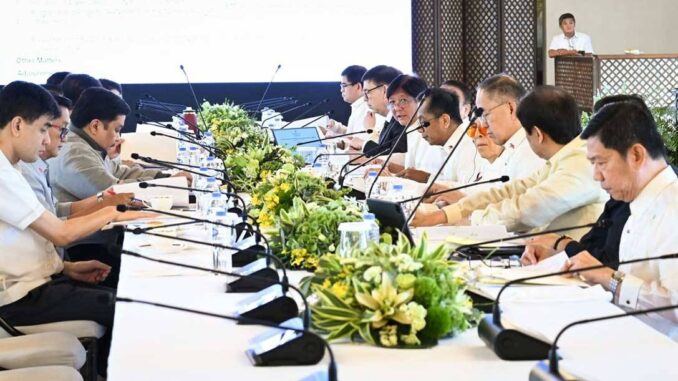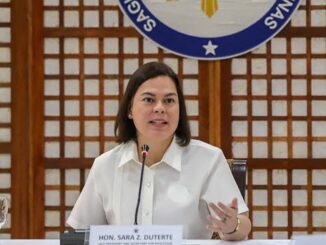
THE House of Representatives has approved most of the priority measures of the Legislative-Executive Development Advisory Council (Ledac).
At the 6th Ledac meeting on Wednesday, House Speaker Ferdinand Martin Romualdez reaffirmed the chamber’s commitment to the legislative agenda of President Ferdinand Marcos Jr.
“As of today, September 25, I am pleased to announce that the House of Representatives has approved 60 out of the… total Ledac Common Legislative Agenda (CLA) priority measures,” Romualdez said.
SIXTH MEETING President Ferdinand Marcos Jr. presides over the 6th Legislative-Executive Development Advisory Council in Malacañang on Sept. 25, 2024. PHOTO BY REVOLI CORTEZ/PPA POOL
“With a deep sense of gratitude to our hardworking members, I also report that the House of Representatives has approved on third and final reading 26 out of the 28 Ledac Common Legislative Agenda priority measures targeted for passage by the end of the 19th Congress,” Romualdez said.
“During the previous Ledac full council, I reported that the House of Representatives had approved three months ahead of schedule all 20 of the Ledac CLA measures targeted for passage by June 2024,” he said.
“In a similar vein, we are targeting a 100 percent completion rate of these 28 priority measures by December 2024, or six months ahead of the end of the Third Regular Session,” he added.
The 19th Congress is on its third and final regular session.
It will be succeeded by the 20th Congress that will start after the May 2025 elections.
The 19 Ledac priority measures that became law included the amendment of the Armed Forces of the Philippines fixed term law; the Regional Specialty Centers Act; the Internet Transactions Act; the Automatic Income Classification of Local Government Units Act; the Maharlika Investment Fund Act; the Trabaho Para sa Bayan Act; the New Agrarian Emancipation Act; the Public-Private Partnership Code of the Philippines; the Subscriber Identity Module Registration Act; the Ease of Paying Taxes Act; the Tatak Pinoy (Proudly Filipino) Act; the New Philippine Passport Act; the Philippine Salt Industry Development Act; the Philippine Ecosystem and Natural Capital Accounting System law; the Negros Island Region Act; the Real Property Valuation and Assessment Reform Act; a new version of the Government Procurement Reform Act; and the anti-financial account scamming law.
Republic Act 11935, which moved the December 2022 barangay and Sangguniang Kabataan (youth council) elections to October 2023, was declared unconstitutional by the Supreme Court.





Be the first to comment